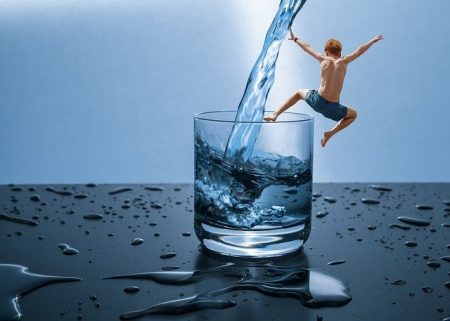We all know that most of us should drink more water – but why exactly? And are you drinking enough of the right stuff?
Fast Water Facts
2/3rds (ish) of your body is made of water with the majority (66-70%) in your cells and LYMPH system. Your lymph system is a key component of your immune system. This body wide system helps move your immune cells to where they need to be to fight bugs and clean up old cells. So having adequate water in your system is super important for optimal immune health!
Water is important for so many other body functions including:
- Production of saliva and digestive enzymes
- Body temperature regulation
- Helps move out metabolic waste and other toxins through the kidneys, urination and bowels (if you are constipated you might just need to drink more water!)
- Is a huge anti-oxidant and amazing at breaking up mucous
- Creating energy at the cellular level (ATP fuels every cell!)

Cellular Energy Production!
Are you drinking enough?
Biggest signs of dehydration – headaches, weight gain, low energy, brain fog, hard time “detoxing” or cleansing (sensitive to smells, alcohol, foods, medications etc).
Clear/uncoloured urine is a decent sign that you are drinking enough, but check in below to see if you have increased needs for daily hydration
How much water do we need?
2 Litres bare minimum (close to that 8 cups a day) is my general recommendation.
You can calculate our personal need too – 1 oz per KG you weigh (2.2 lbs per 1kg) – so a 160 lb (72 kg) person so 72 oz of water, which is equal to 2.1 Ls
Increased need for hydration:
- High protein intake
- Exercise (even if you aren’t sweating!)
- Pain and Inflammation
- High sugar/carb intake
- Pregnancy/Breast feeding
- Dehydrators – alcohol, caffeine, bad salt, sugar
I tell people if you drink a cup of coffee, or a eat a protein bar, you need to drink 2 cups of water – 1 to get back to base line and the 2nd to stay hydrated!
Water reactions in our body are often made across cell walls (at the cellular level for atp and across big groups like the digestive tract and our kidneys and bladder!). The healthier these walls the more hydrated they stay. If cell walls get hurt we will not get as much benefit out of our water as we should!
Factors that hurt cell walls
- Inflammation
- Poor gut health
- Pain killers (NSAIDS)
- Pesticides and chemicals
Is Water all we need for hydration?
Water is the most important, electrolytes are 2nd
- Calcium: helping with muscle contractions, nerve signaling, blood clotting, cell division, and forming/maintaining bones and teeth
- Potassium: helping keep blood pressure levels stable, regulating heart contractions, helping with muscle functions
- Magnesium: needed for muscle contractions, proper heart rhythms, nerve functioning, bone-building and strength, reducing anxiety, digestion, and keeping a stable protein-fluid balance
- Sodium: helps maintain fluid balance, needed for muscle contractions, and helps with nerve signalling
- Chloride: maintains fluid balance
Electrolytes are naturally found in lots of different ways:
- Fresh fruits and veggies! (cucumber, celery, tomatoes, water melon are all amazing)
- Spring/mineral water/structured water
- Natural salts (sea and himilayn, non iodized
- Apple cider vinegar and lemon juice
- Tomato juice (the canadian coconut water I call it… not as much magnesium as coconut but 74% of your daily vitamin C intake in 1 cup!)
You can also get powdered/premade electrolytes from your local supplement store (Ener-C and Ultima are my favs).
TAKE HOMES!
Check in with your daily water intake – is it at least 2+ litres?
Add in some electrolytes, especially if you have a higher hydration need!
Watch for increased energy, better digestion, decreased inflammation and pain and more with your new increased water intake!
*there is such a things as too much water intake. Please don’t drink like 10 L of water and check in with your health provider for actual medical advice, which this is not.
